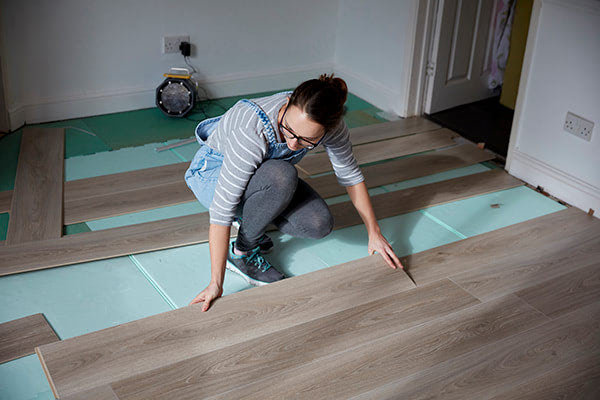There is a lot involved in buying your first home. When you are house shopping, there are so many things on your mind. Whether it’s cobbling together a down payment, thinking about school districts, closing costs, or simply the logistics of moving, there is a lot to think about. It’s not surprising that 78 per cent of millennials prefer move-in ready homes.
However, despite the mental and financial resources it takes, there are some serious advantages to buying a fixer-upper. So when it comes to your first home, it is definitely worth considering getting a fixer-upper.
What are the advantages of a fixer upper?
The most obvious advantage is price. If you buy a home that is not a “turn-key” property, you are looking at saving a lot of money. This is especially true if you can DIY, skipping many of the labour charges that come with renovations. The amount you can save varies greatly depending on an assortment of factors. These include extent of repairs, square-footage, area, how much of those repairs you’re doing yourself, among other things. However, you often wind up spending less money overall. This means not only less money needs to be cobbled together for a down payment, but a smaller mortgage which means smaller payments!
Building equity by buying a fixer upper
Another advantage you have is you can build additional equity in your home. This is good for a variety of reasons. By building equity in your home you are increasing the resale value. If you are in the market for your first home, this might be particularly useful. Only 11 per cent of millennials consider a home a permanent place of residence. If you plan on re-selling in the near future, buying a fixer-upper is a great way to build additional equity in a fraction of the time it would take for turn-key properties.
Space and location! Location! Location!
A phrase you have undoubtedly heard several times, both ironically and sincerely, since you’ve made the decision to buy your first home. In truth, location does matter. Whether it’s to be within walking distance of amenities (or alternatively, far from the hustle and bustle of urban life), close to your place of work or in a certain school district, you’ll notice that location affects price greatly. However, if you buy a home in need of a little work then you can potentially buy a home in your ideal location for much less.
So, from property values, to DIYing, home equity, and location, there are definitely many financial advantages to buying a fixer-upper, but what are the other advantages? There is an oft repeated adage that space is money. This is true for several reasons. Bigger homes require more heating, electricity, plumbing and other parts to maintain. That, and space is desirable and therefore more expensive. However, when you buy a house that needs work, you can often get it for a more reasonable price.
Call your space your own
Not only are you able to get more space for your dollar, but you can call that space your own. When you buy a fixer-upper the decision to renovate is already made. You can do this according to your taste, ability, and budget. By leaving your mark on your home, you create a home that you can be proud of. A 2019 National Association of Realtors survey found that 74 per cent of respondents reported wanting to stay at home more often after renovating. 58 per cent of respondents in the same survey reported feeling happy upon completion of their projects. Buy a fixer-upper and you get to make the house of your dreams.
While on the topic of making your home truly yours, you will also be incentivized to maintain your home. There is a psychological phenomenon that incentivizes you to protect and nurture things you have put financial, physical, and mental resources into. You have put so much of yourself into your once fixer-upper that you can’t help but be happy with it. Whether it’s pride or simple cognitive dissonance, your home is likely to be safer, more well-maintained, cleaner, and happier!
What else should I know?
Now that we’ve gone over the advantages of buying a fixer-upper, what other considerations should you take into account?
The first is the cost. You will likely be saving money, but it is more expensive than many give it credit for. The common advice is to add 15 per cent on to the property value when considering purchasing a home to renovate. However, this varies greatly. You want a fixer-upper you can make your own, not a never-ending list of tasks. One way to avoid this is to get a house inspector to check out the home. The inspector will give you an idea of what work you can expect to be done. You can contact contractors, figure out what you can DIY, and build a budget from there.
Speaking of work, the second big thing you need to consider is the effort. 58 per cent of renovators reported being happy with their homes, but after the work was done. Hard work can be extremely rewarding, but it is also, well, hard. Consider the amount of work that has to be done and how it affects your quality of life during renovations. Ensure that you are ready for the financial and emotional stress of planned projects, and the advent of unplanned projects.
People who make their space their own do report being happier, and there is serious potential for saving money. Just be prepared when considering buying a fixer-upper. If you are a homeowner looking for options, or would like some advice on buying your very own fixer-upper, give me a call at (705) 333-4338 or get in touch with me here!
